
Thank you for inviting me to talk to Duke-NUS Medical School on how to manage one's time in school, and the transition from studies to working in the real world. To succeed in medical school and beyond, let me pass on the advice that I have been given many times, namely, "Work Hard, Play Hard".
The current COVID-19 pandemic has affected our lives in many ways, including reorganising the traditional White Coat Ceremony to be conducted online. Let me congratulate the current batch of new students who have just started on your medical journey.

I thank Professors Kon Oi Lian and Professor Paul Yen who have invited me to be a Friend of Duke-NUS for over 10 years. One thing that impressed me is the dedication of the students. They work very hard indeed. Here they are listening rapturously to a medical lecture.

Duke-NUS students also play very hard. In 2011 they adopted and initiated the Singapore World Autism Day as part of the World Health Organisation programme. They organised a series of workshops, exhibitions and other events. It was a first for Singapore and was a great success.

Yes, it is absolutely essential for medical students to balance their studies with extracurricular activities, and do not forget, one must get enough sleep.
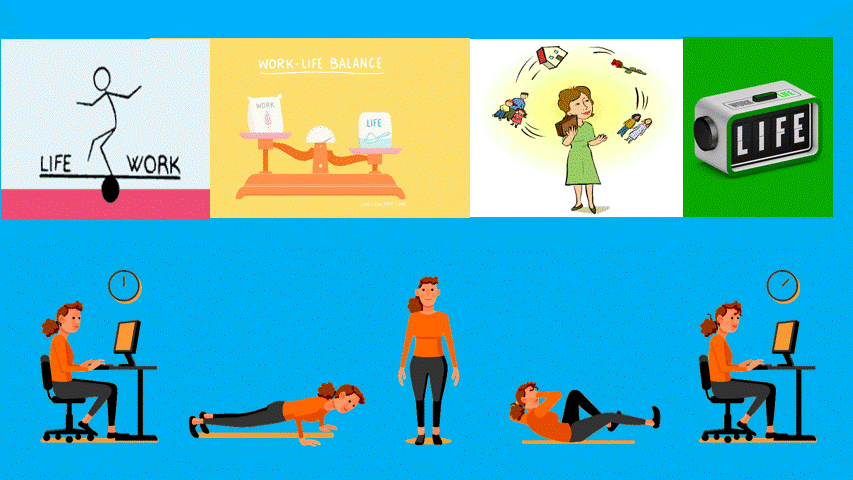
This equilibrium can be viewed as the three points on a triangle: a) study to get good grades (which is often regarded as the pinnacle), and the other major points are b) social life and c) sleep.

For Duke-NUS, we often add in a couple of extra points, including relationships and research.

Time management is the foundation of study-life balance.

It is a good idea to have a calendar to plan your day, and perhaps you can try out the Google Calendar, which is currently the most popular. The next slide shows a detailed calendar, which I suspect most of us might be a bit reticent in using, and I for one, employ a much simpler and less crowded timetable.

You might also consider a to-do list. This consists of a series of tasks that are more flexible in time scheduling, such as going for a haircut or buying a present for somebody

I would also recommend doing some general non-academic reading. This can broaden your outlook as well as serve as a form of relaxation. Hopefully it can help you self-reflect and rejuvenate your mind.

I don't think you can escape from the expectations of everyone... your parents, your lecturers, mentors, and even yourself... that you need to study hard. This is the centrepiece of university education, and it is a prerequisite of medicine. Work hard!
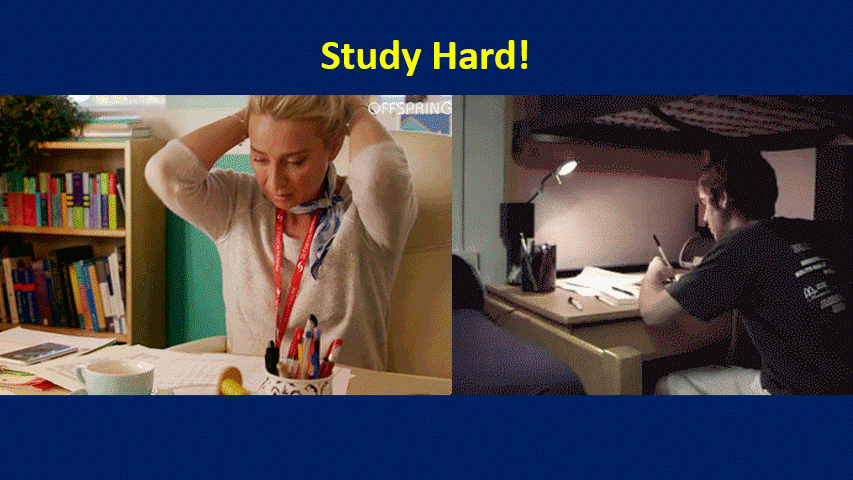
If you are interested in your subject matter, it becomes less of a millstone, and you will enjoy your learning much more. Then after you finished your day's studies, make time for leisure activities, like socializing and exercising.

Go our for a meal together, assuming the Covid pandemic restrictions are lifted. The friends you make during medical school are often friends for life.
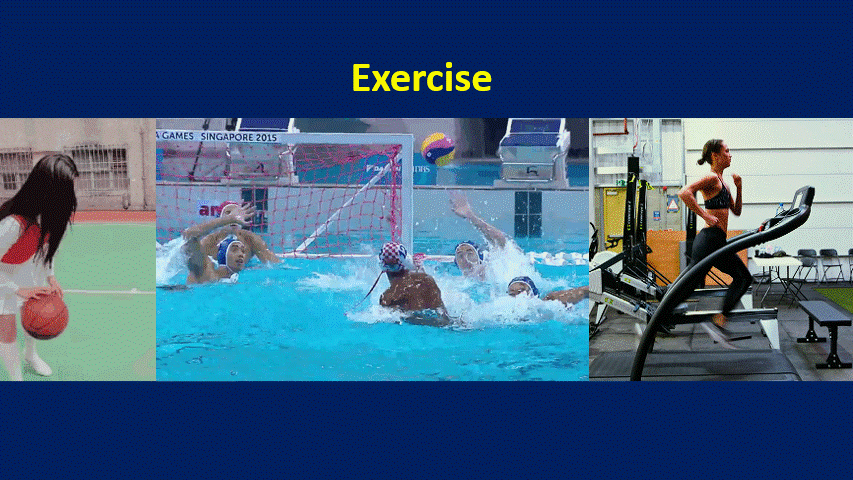
Do some exercises, play some sports, go to the gym, go walking, running or dancing. They can help you de-stress.

The arts can also help you relax and cope with the pressures of medical school. The picture above shows Shea Ng, a medical school graduate and his university colleague composing and singing songs.

University is a good place to form close relationships, so do find time to go on dates.

Sleep is important, and it is generally recommended you get at least 6-8 hours of sleep. Keep your handphone further away so that it doesn't disturb your sleep.

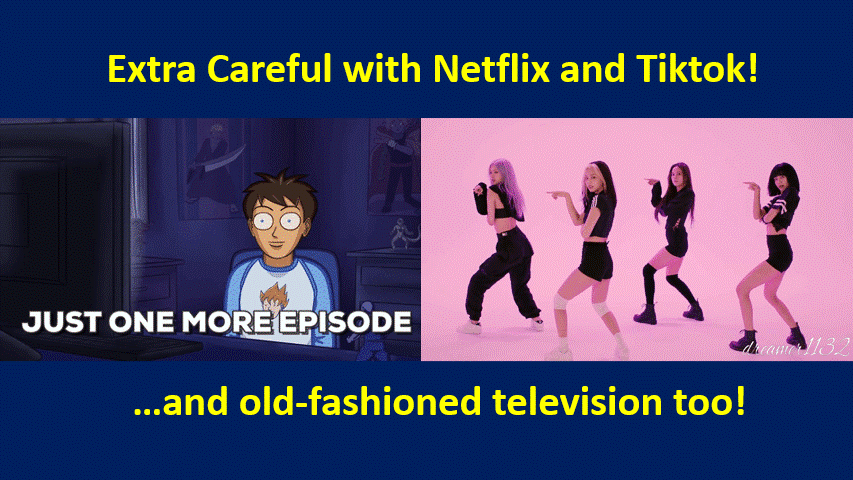

I am not saying you cannot indulge in social media, watch Netflix, or produce TikTok videos, or play video-games. Just control the amount of time spent on these activities.

I was asked to share my personal journey from medical school and entry into the real world. I started medical school at Oxford University and this was my hall of residence at St Edmund Hall.


I really enjoyed medical school, and I had a wonderful panoply of lecturers including the three depicted above: Hans Krebs of the Krebs Cycle, Ernst Chain for his work on penicillin, and Rodney Porter who determined the structure of the immunoglobulins. All three won Nobel Prizes. They were very inspiring teachers.

After 3 years at Oxford, I went to do my clinicals at the Middlesex Hospital, which became part of Univerity College London. I thought I would specialise in cardiology, but on the first day of my cardiology posting, I was asked to insert a catheter for coronary angiography, but I could not get it into the coronary artery despite several tries. My supervisor got it in effortlessly.

So I changed my mind and decided to become a paediatrician. One thing you will learn is that in life, although you think you would like to enter a certain specialty, when you actually set foot inside that field, you might find out you are not suitable for it. Luckily I managed to get a paediatric job, and I spent 18 months at the Great Ormond Street Children's Hospital in London.


Througout my medical training, from undergraduate to postgraduate days, I have been involved in research. I got a research fellowhip at the Children's Hospital of Philadelphia, and spent 3 years there.


I am a great believer in medical and science research. Over the decades I have seen monumental breakthroughs that have saved millions of lives. I hope that all schools will incorporate research and make it a bedrock of education. I am extremely impressed by the quality of American research, and if you have an opportunity to do research there, I highly recommend it.

When I was at the University of Pennsylvania, I was headhunted by the Vice-Chancellor of the National University of Singapore, Professor Lim Pin, who visited me, and asked me to return to Singapore. I joined the National University Hospital and was there for several years.

I continued to do some research, and above is a list of some of my research and other publications.
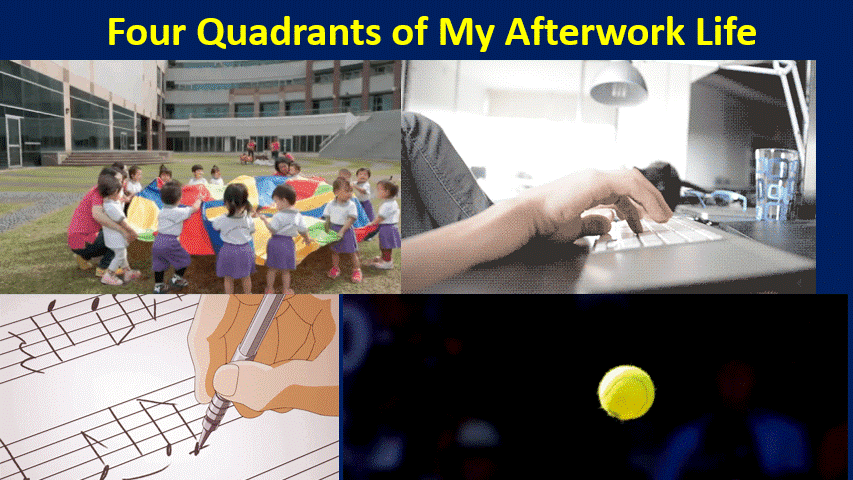
I try to balance work and play. Above are the four quadrants of my afterwork life: I do a) community service, b) write articles and books, c) compose music for musical theatre, and d) play regular tennis.

Realising there were insufficient services for young developmentally challenged children, and there was nothing available for children on the autism spectrum, I started the Rainbow Centre, which now runs four schools. We also helped start the Pathlight School for older children with learning diffiulties.

I enjoy writing and have published numerous articles and have co-authored the books listed above. Below are some of the books on education and childcare.

I also love composing music and have staged over 30 musicals, and written over 200 songs. I have also collaborated in writing two musical series for television.


For sports, I play tennis every week. This keeps me fit.

In short, this is how I try to balance work and play. The secret is to manage your time as best you can, allowing yourself to have time to rest.

I will now like to show some photos of other doctors who also manage to balance work and play. Below are some of their hobbies:



I also teach medical students, and below is probably one of my most famous students, who was a brilliant debater. He continues debating in parliament.

The medical profession is not a sprint race, but rather it is a marathon. Even after graduating from medical school, there is a lot that you can do, both in your medical practice as well as outside.

Below is a photo of this year's graduates from Duke-NUS Medical School. They are now entering the real world, and I wish them the very best!

I am not a solo player. We are a team that work closely together to ensure our success. The recognition of the achievements of my team came when the Duke and Duchess of Cambridge chose to visit the Rainbow Centre at Margaret Drive during their visit to Singapore in 2012.
I thank Duke-NUS for inviting me to share my experiences, and I urge you all to "Work Hard, Play Hard"!
Thank you!

Talk given to Duke-NUS School of Medicine by Kenneth Lyen on 24 November 2021